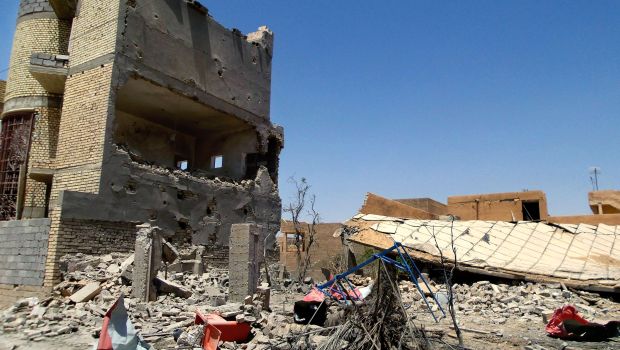The US has put a 10 million dollar bounty on the head of a terrorist called Abu Bakr Al-Baghdadi. It would make no sense for me to invite President Barack Obama to pledge allegiance to Baghdadi, who has now proclaimed himself “Caliph” Ibrahim, a ludicrous scene. But the truth is that the policies of the current US administration—among other factors—have helped the legions of the Islamic State of Iraq and Syria (ISIS) to establish their foothold in several locations on Syrian territory. A blind eye was turned even when the organization declared the Syrian city of Al-Raqqa an interim capital and moved to exercise the oppression of swords and killing of people on its streets and alleys of the city.
The continued mistake of the US leniency in dealing with the Bashar Al-Assad regime has made it easier for ISIS to advance toward neighboring Iraq. With the arrival of ISIS in Mosul, then being a stone’s throw from Tikrit and closing in on Baghdad, it seemed to Baghdadi that the “caliphate” had come under his beck and call. He has gained power and influence, and it has therefore become necessary for the “Islamic State” to replace the “Islamic State of Iraq and Syria.” ISIS consequently demanded that each group that does not pledge support to it and to its leader, the man the US declared as the most dangerous terrorist in the world, should disband.
The seriousness of this issue lies in the fact that it is much more than a mere talk that may sound unworthy of much attention. The situation in the Arab world is no longer merely on the brink of fragmentation. There are actually now only two choices: either to make a move or collapse.
There is an old Sudanese adage that goes: “Whoever gets wet with water should swim.” I remembered this adage, as I—like many others—see how bad the situation in the Arab world is, and how it has become so dangerous and alarming.
Everyone, wherever they are in the world and whatever views they hold, is free to act on proverbs they hear and say aloud what they believe is right as dictated by their interests.
Now, the most important question is whether the Arabs can continue down the path the Arab Spring created. Or is the situation too grave to be rectified? Have these events already impacted all those who felt able to remedy this situation?
I do not have an answer, but still, it is not right to surrender to despair. The objective logic requires conceding that it is not only the US that miscalculated on Syria, Iraq, Libya and other communities which the shocks of the past four years exposed them to dangers that could fragment them. Before blaming major countries, the people of these communities ought to look deeply into the actions of their own key forces or players.
The dream of change has retreated, followed by the collapse of the hope for peaceful rotation of power. The failure has hit the order of priorities, thus disrupting the order of society. And the consciousness of the mind was afflicted with a dizzy headache. Thus sick thinking prevailed and the people with reasonable opinions were hidden away in the jungle of spoiling minds. Megalomania filled the hearts, and people put themselves above others.
The people who were arguing for valid causes with invalid purposes were loud; those who spoke falsehoods were more vocal in broad daylight. After all, they were refuting a bright truth. And so, the right of jihad of the sort equipped with the light of knowledge got mixed up with the darkness of weapons and killing.
Everything has become a bone of contention, and so it is no wonder if things lose their meaning.
Throughout history, civilizations rose and then perished. Some were declared but did not live long, such as the unification of Libya and Tunisia under the name of the “Islamic Arab Republic” declared by Muammar Gaddafi after a sudden summit with Habib Bourguiba on January 12, 1974. Other countries rose up from the rubble of destruction and strongly weathered the wind of unrest around them.
In this context, it can be said that this new state declared by the ISIS organization may live some days, weeks, months, or even years—who knows? But it remains that a small faction that broke away from Al-Qaeda managed in four years to organize thousands of fighters under banners that could cross and occupy vast areas in Iraq and Syria. It is also important to remember that this development in itself was not taken as seriously as it should have been, given the size of future dangers it posed.
Is it still possible to neutralize the impact of ISIS, that outcome of miscalculations? The answer should be an absolute yes, backed up by lessons from what happened and knowledgeable and objective plans. Let us hope that is what is coming next.
